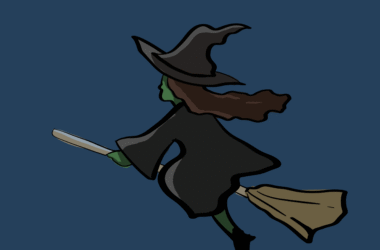 eraziel.com
eraziel.comThe Artist is cinema for cinephiles. Set at the dawn of the Golden Age of Hollywood, it’s at once a post-mortem and celebration of the silent genre. Director Michel Hazanavicius crafts a rich, beautiful world using minimalist cinematic strokes by today’s standards, and in his effort takes the viewer through the rabbit-hole to where films were born.
Right from the first title card—”1927″—and the iris-style opening shot, the audience is made aware of The Artist‘s peculiarities. Made entirely in black and white, with nearly zero dialogue, the film defies many of what are regarded by today’s movie-goers as film conventions. In doing so, The Artist benefits. Much literature exists on the heightening of remaining senses when one is lost, such as richer tastes granted by dining in the dark; in much the same way, Hazanavicius’ resurrection of the silent film is a reminder of the vigour with which occasionally-neglected elements such as score can evoke emotions.
The titular character is George Valentin (in a Cannes best actor-winning turn by Jean Dujardin), a wildly charismatic and successful star of silent films. By fate he encounters a budding actress, Peppy Miller (Bérénice Bejo), and imparts some timely advice. The film then chronicles Miller’s subsequent ascent to stardom and Valentin’s parallel fall from fortune as a result of the invention of “talkies.” It’s the story of Singin’ In the Rain, kicked under the carpet.
Plot aside, by replicating the best of silent films within his own, Hazanavicius inspires a wondrous nostalgia for a genre that is, admittedly, not without advantages over modern Hollywood. These were the days when the climax was found in the tension of soaring strings, not CGI-enhanced characters arcing through the air in a slow-mo held far too long. Composer Ludovic Bource also deserves accolades. Hazanavicius also admits to being drawn to the genre for its emphasis on visuals; he should be content with Guillaume Schiffman’s cinematography, which served his script well.
Dujardin was wonderful as Valentin, and his skill is shown through the kid-at-heart sympathy he invokes in the audience being carried through to the very end of the (rather zealous) self-destructive streak demanded by the script. Bejo’s Miller is radiant, and though not comparable to Dujardin, appeared well-fitted to the melodrama.
After nose-diving through significant layers of misery, the plot manages to avert a fiery crash with a hard upward pull right at the end. However, its predictability doesn’t lessen its impact. The denouement is a nice refrain of an all’s well that ends well mentality—except of course, the silent genre is still dead. I may never see a newly-made silent film in my lifetime. Nevertheless, that doesn’t mean Hazanavicius’ 100 minutes of Lazarus was anything but magical.






